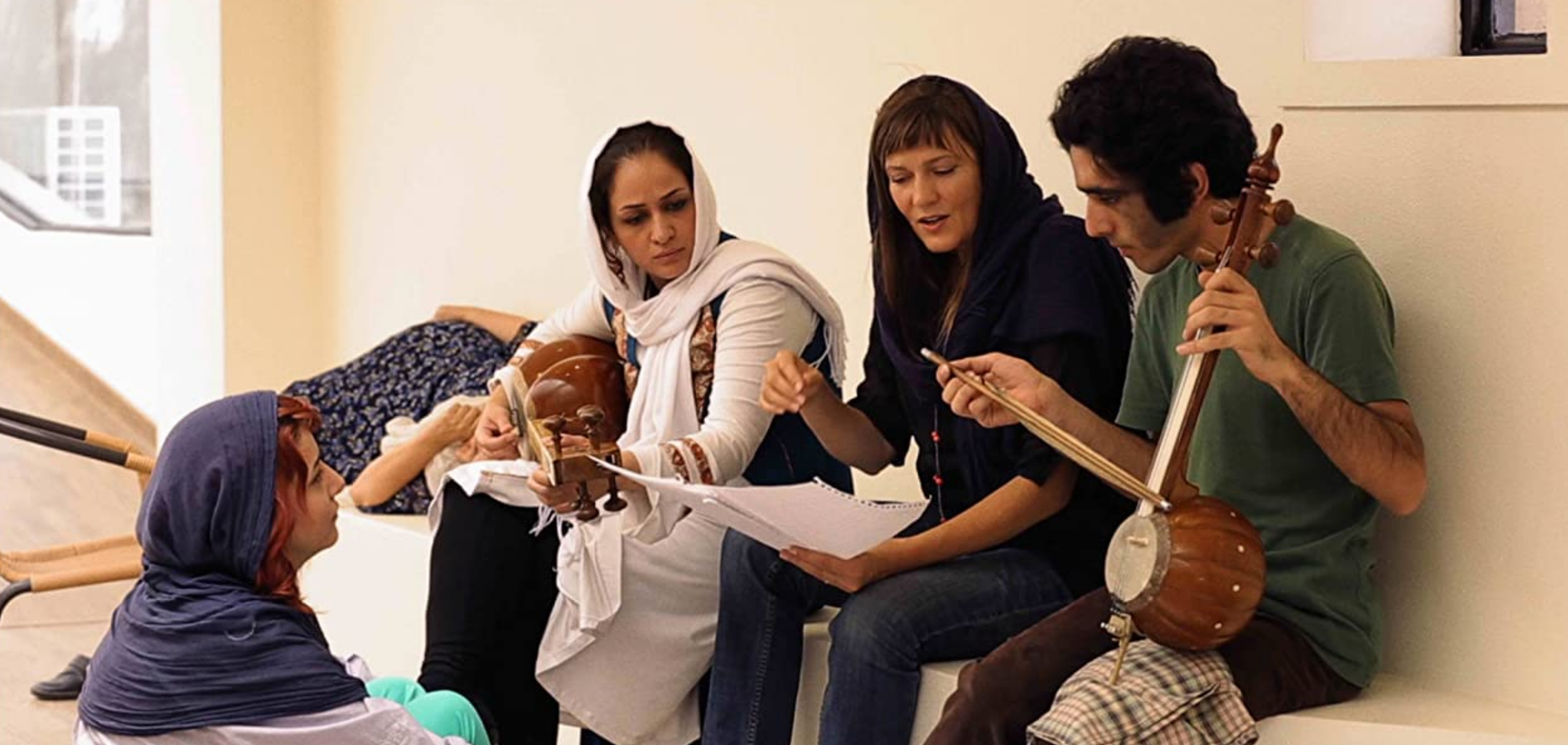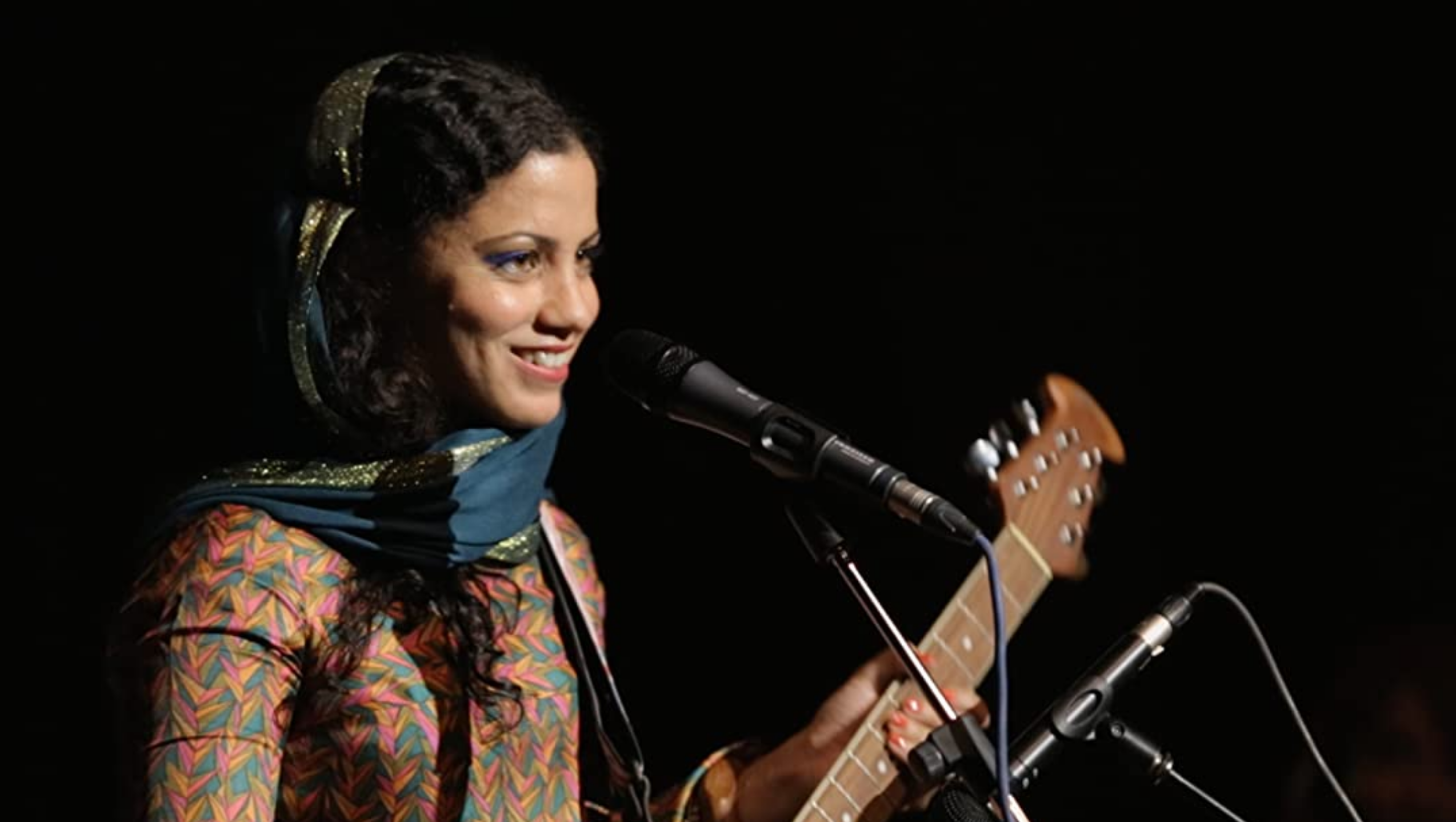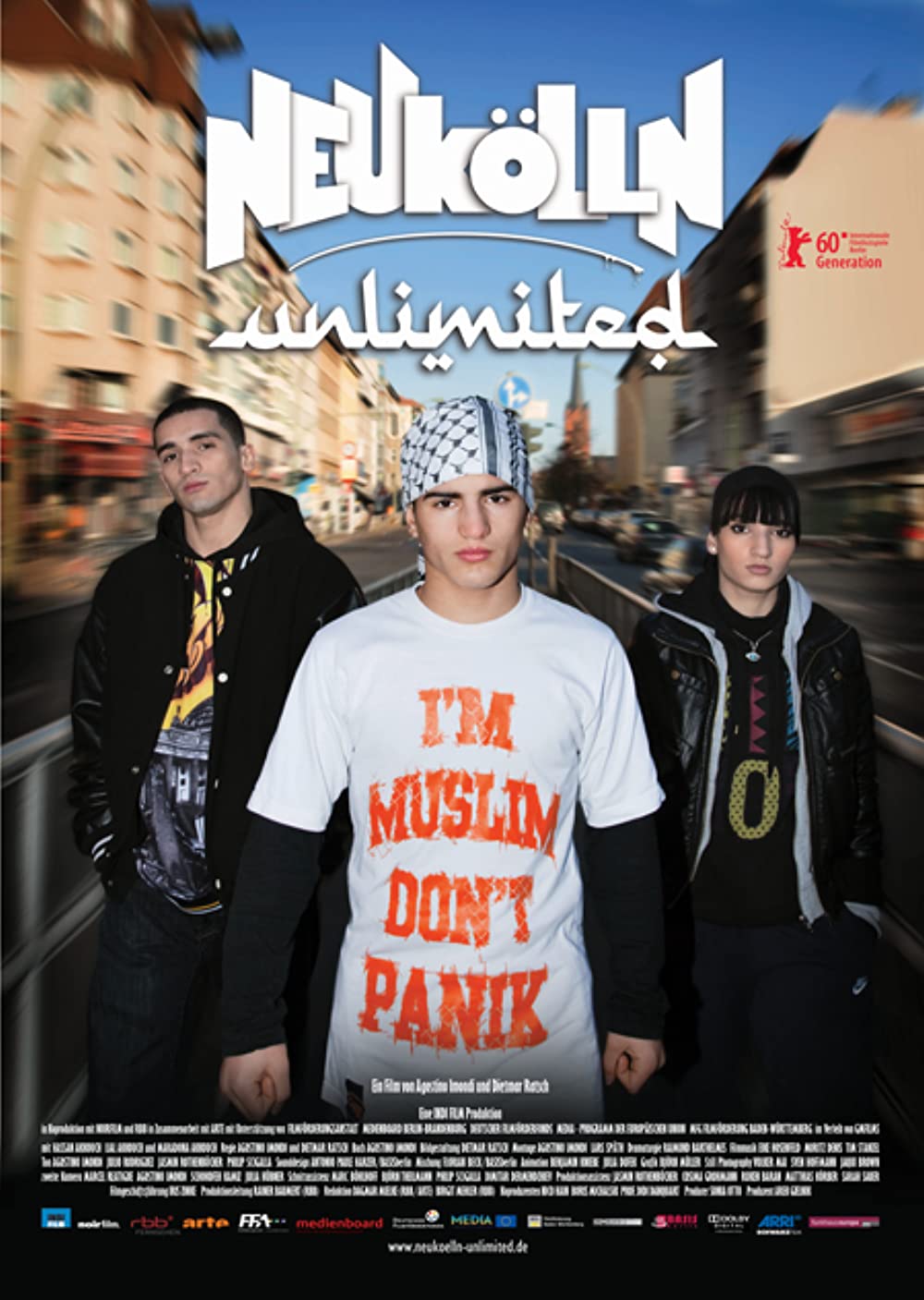Some Involvements
©No Land’s song





A Documentary Film by
Ayat Najafi
In the wake of the revolution of 1979, the new regime forbids women in Iran to sing publicly as soloists in front of men.
In defiance of censorship and cultural, religious and legal taboos, a young composer named Sara Najafi decides to organize a concert for female solo singers.
The documentary poses the question of whether women will ever be successful in singing free, together, side by side, in front of a mixed audience, without restrictions or interference. Success in their immediate quest makes for a compelling drama. On the other hand, the long-term effect is more questionable.
︎︎
Ayat Najafi
In the wake of the revolution of 1979, the new regime forbids women in Iran to sing publicly as soloists in front of men.
In defiance of censorship and cultural, religious and legal taboos, a young composer named Sara Najafi decides to organize a concert for female solo singers.
The documentary poses the question of whether women will ever be successful in singing free, together, side by side, in front of a mixed audience, without restrictions or interference. Success in their immediate quest makes for a compelling drama. On the other hand, the long-term effect is more questionable.
︎︎
©Aus diesem Tralala kommst du nicht Raus

A Documentary Film By
Pantea Lachin and Sobo Swobodnik
About the life, ideas and influence of the crossover artist and activist Ben Wagin. ︎
Pantea Lachin and Sobo Swobodnik
About the life, ideas and influence of the crossover artist and activist Ben Wagin. ︎
©Töchter des Aufbruches





A Documentary Film By
Ulrike Bez
Come along and wander, because I have wanderlust..." In music that is fast-paced and full of vitality, Ebow, a young rapper, takes us on a journey through the history of immigrants in Germany. Filmmaker Uli Bez has interviewed three different groups: so-called traditional immigrants from the sixties, political immigrants, and their grandchildren. The last go back to their very roots, grandmothers and mothers, portrayed as a source of creativity. All these women share with us their frequently adventurous life, with an open mind and a touch of humour. We hear stories of not being able to understand this new environment as well as not being understood back home. And there is an ongoing pain: of having left your children behind in the village, of a mother who turns into a stranger, a feeling of dislocation due to political circumstances and a lack of roots -- a permanent shadow. And yet, leaving poverty behind, these political fugitives were carried on the wings of hope, driven by a strong longing for freedom and self-determination. On the other hand, the women also had to break with their traditional ways of life. Singer and songwriter Ebow X puts it like this: "Let us all be wandering, from heart to heart, let's feel and comprehend each other’s pain..." The story ends with singing women dancing in a circle -- a symbol for being grounded, each of them in their own way. The song “wanderlust” was composed and written by Ebow Düzgün. The gimmick of using the term “Wanderlust”, a typical 19th century German virtue defined in the context of the history of industrialisation gives the film its particular note. All players made huge contributions by sharing their stories and songs. The film was a low budget production by Frauennotruf (emergency call for women). The film is a contribution to the fight against racism and xenophobia in Germany. The title “Daughters of the Dawn” refers to the Enlightenment and to feminism. Both have the same ambition: to escape from an unsatisfactory situation in order to create a life of self-determination. ︎
Ulrike Bez
Come along and wander, because I have wanderlust..." In music that is fast-paced and full of vitality, Ebow, a young rapper, takes us on a journey through the history of immigrants in Germany. Filmmaker Uli Bez has interviewed three different groups: so-called traditional immigrants from the sixties, political immigrants, and their grandchildren. The last go back to their very roots, grandmothers and mothers, portrayed as a source of creativity. All these women share with us their frequently adventurous life, with an open mind and a touch of humour. We hear stories of not being able to understand this new environment as well as not being understood back home. And there is an ongoing pain: of having left your children behind in the village, of a mother who turns into a stranger, a feeling of dislocation due to political circumstances and a lack of roots -- a permanent shadow. And yet, leaving poverty behind, these political fugitives were carried on the wings of hope, driven by a strong longing for freedom and self-determination. On the other hand, the women also had to break with their traditional ways of life. Singer and songwriter Ebow X puts it like this: "Let us all be wandering, from heart to heart, let's feel and comprehend each other’s pain..." The story ends with singing women dancing in a circle -- a symbol for being grounded, each of them in their own way. The song “wanderlust” was composed and written by Ebow Düzgün. The gimmick of using the term “Wanderlust”, a typical 19th century German virtue defined in the context of the history of industrialisation gives the film its particular note. All players made huge contributions by sharing their stories and songs. The film was a low budget production by Frauennotruf (emergency call for women). The film is a contribution to the fight against racism and xenophobia in Germany. The title “Daughters of the Dawn” refers to the Enlightenment and to feminism. Both have the same ambition: to escape from an unsatisfactory situation in order to create a life of self-determination. ︎
©Neukölln Unlimited

A Documentary Film By
Agostino Amondi & Dietmar Ratsch
The children of the Akkouch family, Hassan (18), Lial (19), and Maradona (14), are successful musicians and breakdancers who live in Berlin. They grew up with hip hop and streetdance - they are their language and their passion. But pressure has put a strain on their two teenagers and a rivalry arises about who should be the family's main breadwinner.
In the meantime, Maradona gets himself into more and more trouble, and is suspended from school. He is at the crossroads between his siblings’ ambitious lifestyle and the street life of his mates. However, a surprising qualification for a TV-casting show could prove to be his salvation. If he wins the 100,000 euro prize money, he might be the one who saves the family.
Neukölln Unlimited can best be described as a musical film that deals with the topic of the integration of immigrant youth living in neglected urban areas. ︎
Agostino Amondi & Dietmar Ratsch
The children of the Akkouch family, Hassan (18), Lial (19), and Maradona (14), are successful musicians and breakdancers who live in Berlin. They grew up with hip hop and streetdance - they are their language and their passion. But pressure has put a strain on their two teenagers and a rivalry arises about who should be the family's main breadwinner.
In the meantime, Maradona gets himself into more and more trouble, and is suspended from school. He is at the crossroads between his siblings’ ambitious lifestyle and the street life of his mates. However, a surprising qualification for a TV-casting show could prove to be his salvation. If he wins the 100,000 euro prize money, he might be the one who saves the family.
Neukölln Unlimited can best be described as a musical film that deals with the topic of the integration of immigrant youth living in neglected urban areas. ︎